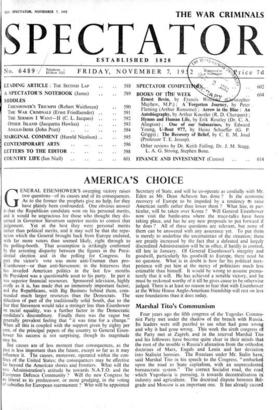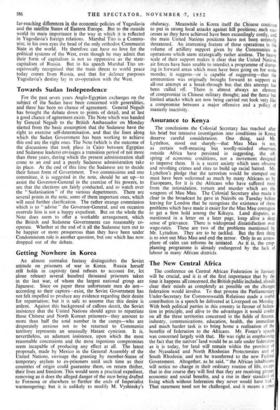Marshal Tito's Communism Four years ago the fifth congress of
the Yugoslav Commu- nist Party met under the shadow of the bread' with Russia. Its leaders were still puzzled to see what had gone wrong and why it had gone wrong. This week the sixth congress of the Party met at Zagreb, and in the interval Marshal Tito and his followers have become quite clear in their minds that the root of the trouble is Russia's alienation from the orthodox doctrines of Marx, Engels and Lenin and her deviation into Stalinist heresies. The Russians under Mr. Stalin have,' said Marshal Tito in his speech to the Congress, "embarked upon the road to State capitalism, with an unprecedented bureaucratic system." The correct Socialist road, the road which Yugoslavia is pursuing, is towards decentralisation in industry and agriculture. The doctrinal dispute between Bel- grade and Moscow is an important one. It has already caused far-reaching differences in the economic policies of Yugoslavia and the satellite States of Eastern Europe. But to the outside world its main importance is the way in which it is reflected in Yugoslavia's foreign relations. Marshal Tito is a Commu- nist; in his own eyes the head of the only orthodox Communist State in the world. He therefore can have no love for the political systems of the West, even though he may admit that their form of capitalism is not so oppressive as the state- capitalism of Russia. But in his speech Marshal-Tito un- equivocally recognised that the main threat to world peace today comes from Russia, and that for defence purposes Yugoslavia's destiny lay in co-operation with the West.



































 Previous page
Previous page